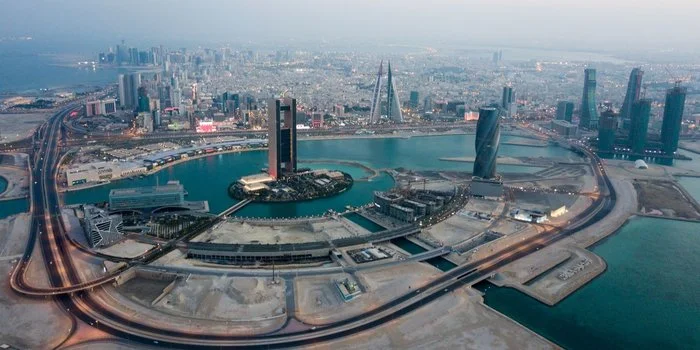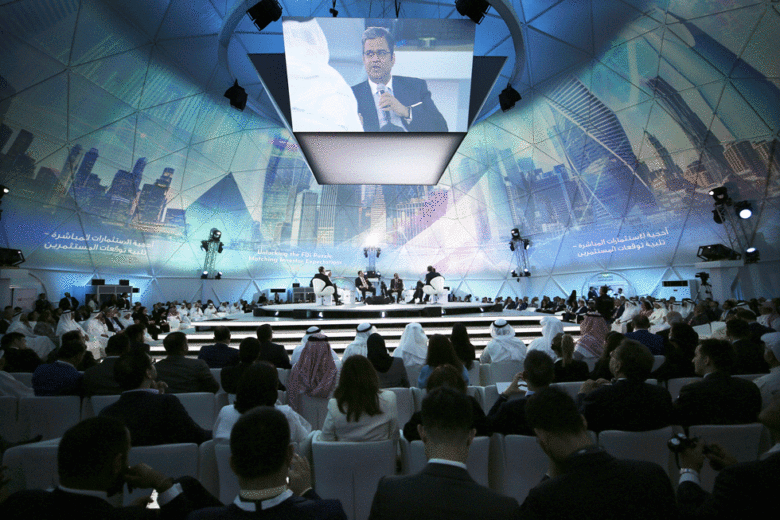Manama aims to become GCC’s data hub
EXCLUSIVE INTERVIEW: Khalid al-Rumaihi, CEO of Bahrain Economic Development Board, on Manama’s data vision
On 8 May, investors from around the world met in Manama’s spectacular Four Seasons Hotel to discuss investment opportunities in the GCC.
The event was timely. Foreign investment in the region has fallen dramatically over the past decade, and as the GCC continues its adjustment to lower oil prices, attracting higher levels of private capital has become a top priority for governments.
The forum was hosted by the Bahrain Economic Development board (EDB) under the patronage of the Crown Prince of Bahrain Prince Salman bin Hamad bin Isa al-Khalifa, and was significant for several reasons.
It was Bahrain’s first-ever large-scale investor forum and the kingdom used the occasion to showcase an array of investment projects in the country, with an estimated value of $26bn. More significantly, Gateway Gulf was the first-ever regionally focused investor event.
Regional event
At a time of increasing competition for investment when governments typically use such occasions to promote their own attractions, Gateway Gulf sought to present the GCC as a regional investment opportunity, with different market offerings, rewards and risks, but all as a gateway to the entire region. With the governments of Bahrain, Saudi Arabia, Oman, Kuwait and the UAE hosting investor sessions or delivering presentations, Gateway Gulf was a truly regional event.
“Investors see the Gulf as an interesting location and want to know how to access it,” says EDB CEO Khalid al-Rumaihi. “Gateway Gulf is a platform for the Gulf and we wanted to project the Gulf. Every country from Kuwait to Oman has opportunities. If Saudi Arabia develops its defence manufacturing sector, there is opportunity for Bahrain. While Saudi Vision 2030 is focused on Saudi Arabia, it creates opportunities for us. It is not zero sum. The rising tide will lift all boats, with net benefit to the region.”
Competitive advantage
As the region’s smallest economy, it makes sense for Bahrain to pitch itself as a gateway to the region, and particularly to neighbouring Saudi Arabia. “Bahrain has a competitive advantage,” says Al-Rumaihi. “We are 30 minutes from Dammam with a causeway link, and a second causeway coming. People live here and have schools here, and commute to the Eastern Province.”
But Manama is looking far beyond the traditional advantages of geography. It sees an emerging opportunity for a small, agile country to position itself as a leading centre for data and digital technology.
“Digital technology is disrupting every sector, from e-commerce to industry, and from finance to tourism,” says Al-Rumaihi. “So for any country not to embrace technology and not to be prepared, risks that economy becoming irrelevant.”
Pioneer economy
Bahrain has always been the Gulf’s pioneer economy. In the 1930s, it was the first of the GCC states to discover oil. Four decades later as its oil fields began to age, it was the first country in the region to invest in major diversification initiatives, first with financial services, and then with heavy industry through Aluminium Bahrain (Alba). In 2004, it was the first country in the region to deregulate its state-run telecoms sector.
Manama is once again seeking to open up new sectors in order to ensure it has a vital place in the regional economy, and has embarked on a journey to establish itself as the data hub for the region, providing data services ranging from data storage through to software and data security.
Data centres
The kingdom’s data vision took a giant step forward in December 2017 when the cloud services arm of US-based technology firm Amazon Web Services (AWS) announced plans to build three new data centres in Bahrain. The centres will host customer data and other resources around a specific geographical area and are expected to become operational in 2019. The new facility will give AWS customers and partners the ability to run their workloads and store their data in the Middle East with lower latency. AWS counts Flydubai, MBC Broadcasting, ride-hailing service Careem and startups such as Fetchr, Payfort and Dubizzle among its clients in the region.
“The region needs greater data communication,” says Al-Rumaihi. “Corporates in the region store data in Ireland because it is cost effective and fast. For governments, storing data outside the country is a concern. It will give confidence to regional countries to store data in Bahrain.
“Data is increasingly important,” he says. “The Amazon data centre is like a data refinery, and not just for downstream data services. There is infrastructure as a service, cyber security and software as a service.”
In the coming years, Bahrain will seek to invest in the wider data ecosystem in order to help its new data industry clusters to flourish and to create high-value jobs for locals.
Attracting investment
Ultimately, the EDB’s agenda is to attract investment in Bahrain across a diversity of sectors. In the three years since Al-Rumaihi took the reins at EDB and launched its current investment plan, the kingdom has seen a strong increase in investment.
“We are ahead of the plan,” says Al-Rumaihi. “We started with 40 investment projects two years ago. This year’s targets are 80 investment projects with about $450m of FDI [foreign direct investment] and creating 2,500-2,600 jobs. Next year we are aiming for 100 with about $600m. So it is constantly increasing. We do not yet have the final numbers, but I believe 2017 saw record levels of FDI. I expect 2018 to be another record year.
“Tourism, real estate, healthcare, education are big drivers of FDI this year,” he adds.
“If you look at FDI globally, the average is about 2 per cent of GDP,” he says. “Last year, Bahrain received investment equal to about 2-2.5 per cent of GDP via the EDB. So we are around what we should be. We are beginning to have an internal debate. We are putting together a three-year plan and looking at the pipeline.”
Al-Rumaihi makes a compelling case for investing in Bahrain. “We are a services hub for the region. We chose industries like food manufacturing so companies can manufacture here and ship.”
“We are also cost effective, with about 30-40 per cent cost advantage between Bahrain and its neighbouring states,” he says. “Investors will find a customer centric, nimble government almost with private sector mentality. We have our Saudi proximity that allows a model like Hong Kong to China. And we have liberal open regulation that allows foreign ownership across 98 per cent of the economy.”
Source: https://www.meed.com/manama-aims-to-become-the-gccs-data-hub/






